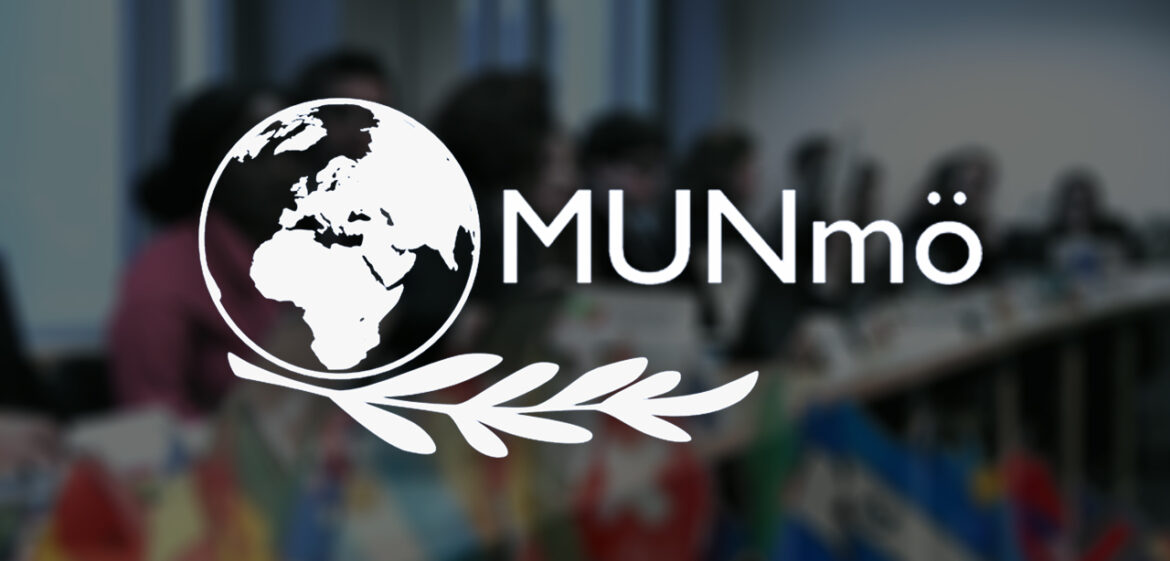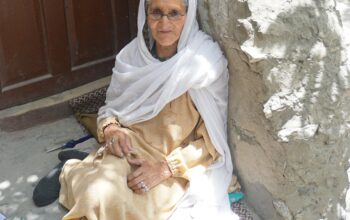
I first came across the Model United Nations (MUN) as a child when I was watching Northern American television shows for children. It was something American children did on TV: like prom, but for politics. I did not understand it, and I never got the chance to take part in it.
To learn more about this “simulation game”, I reached out to the one person I know is passionate about MUN: UF Malmö’s Head of MUN Rebecca Coluccino. She first became acquainted with MUN in her school in Italy. There was a bit of luck involved, too. Rebecca’s school sent her to her first-ever MUN Conference at the United Nations headquarters in New York in 2016. At the time, Rebecca did not understand the technical procedures of the conference. Regardless, she was very interested in learning to debate about political issues and understand other cultures.
Is the MUN conference a game?
The MUN is a simulation game. The players are called delegates, and each participant is assigned a country they will be representing in the discussions. The delegates are pretending to be diplomats of a specific country the delegate is assigned to, for example, ‘the diplomat of Sweden to the United Nations’, but that is just a technical term.
In every conference, there are two questions. The debates around the questions aim to obtain a resolution that your country would benefit, and that the resolution is acceptable to the other delegations. There is no ‘winning’ at the conference, but some people will try to win the simulation anyway. The goal is to have good debates and seek common good with the discussions. Sure, there are some awards, but you will not win it if you treat the conference as a competition.
Who organises the conference?
Technically anyone could organise a Model UN conference, but it is often a school organising the conference. In our case, though, it is a student association. UF Malmö has many different committees for different activities. One of them is the editorial committee making this particular magazine possible. Another is the MUN of Malmö committee. Rebecca was elected to be the head of MUN of Malmö for this semester, which means that she is the one organising the conference this year. She collected her team for organising the event this year, and they have set the dates to be 21.-23. of May 2021 (mark your calendars!).
Without going into further details on how exactly is the conference organised, I will say it seems like a lot of work but very doable. If you wish to take a closer look, there is a guide provided by the United Nations. But worry not, to join the conference as a delegate you would not have to know how to organise such an event. The first steps for this year’s conference have been completed as Rebecca has a team working on different topics, such as financial and logistics.
A month before the conference, the application process begins. You do not have to be a delegate, i.e. represent a country in the conference. You could also apply to be a member of staff or a chairperson. There is room for a ton of people, as there are many countries in the United Nations. The only restriction is that you need to be a student. Students at Malmö University will be prioritised, but all university students are considered. The size of the conference depends on the number of applicants. I asked Rebecca if I could join, being an English Studies student, not a Global Politics student. She said that there are people from all possible study paths. To be able to join the conference you just have to be motivated.
Why do students join?
I believe many would be interested to know what you get out of joining the conference: valuable experiences, for the first. Any employer would be interested in an employee who can collaborate with people from different cultures and state their opinions coherently. It looks good on your CV, in other words. There is also a social aspect to it that many are lacking during the pandemic. In ordinary times people taking part in the conference would spend time together after the debating. This year the conference is held in Zoom, so you “start zoom and start debating” as Rebecca says. Her team will try to come up with something to have the social aspect of the conference online, too. Even held in Zoom, you would meet new people who share an interest in global affairs. You should expect the application period to start in mid-April.
People are sometimes scared of the MUN conference, Rebecca says. They worry they do not know enough to join. Rebecca wanted to change that. She encourages people to ask questions and come as they are. Rebecca had her first experience in MUN too. No one explained to her the terms, but she will explain them to you. Remembering all the terms is not important, Rebecca says. You could say: “Ay, can we all just talk about this political issue?” and the chair would know that you mean round robin.
Here are four terms explained by Rebecca:
Round robin: All delegates participating in the debate give a short speech about their position after the chairperson calls their country.
Point of personal privilege: Literally, if something is annoying you and you want to say it. For example: “I can’t hear China’s Delegate, could they speak up?”
Moderated Caucus: a debate on a determined issue (usually “motion for a 10 minutes moderated caucus on topic A/to discuss […] with 30 seconds speaking time”), where delegates have to raise their placards and wait for the chair to allow them to speak. Not everyone has the chance to speak, and it is up to the chair who does and when. In this case, when the 10 minutes end, the Caucus ends too. The “30 seconds speaking time” means that you can only talk for 30 seconds once you have been allowed to do so. Time changes, and theoretically, one can propose anything.
Unmoderated Caucus: same rules apply for timing, but delegates are free to move around and speak to other delegates without restraints or lists. People get confused about this because sometimes it can also be called a lobbying session or informal session.
Have questions about MUN of Malmö? Ask Rebecca at munmomalmo@gmail.com or reach out to her on LinkedIn.







